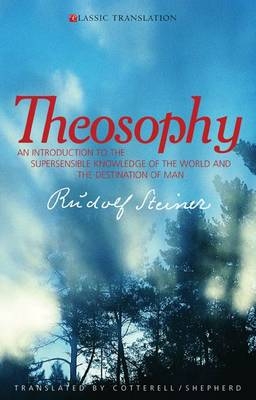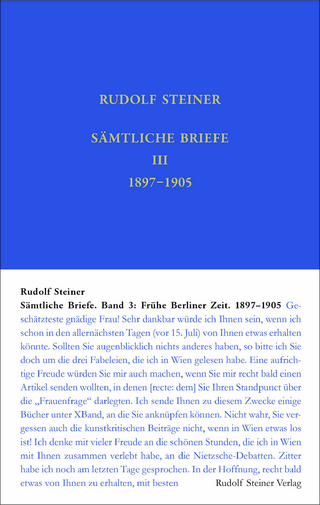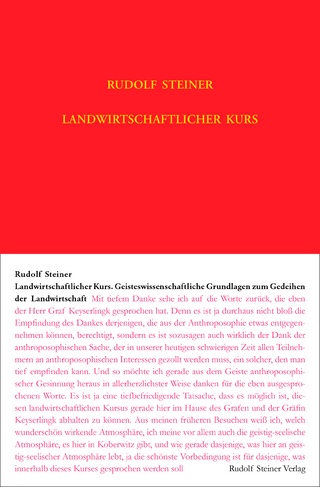
Theosophy
Rudolf Steiner Press (Verlag)
978-1-85584-131-4 (ISBN)
The book ends with a chapter on the modern 'path of knowledge', in which Steiner describes the exercises through which every person may develop the latent powers of perception which are necessary for a knowledge of metaphysical worlds.
Rudolf Steiner (1861-1925) was born in the small village of Kraljevec, Austro-Hungarian Empire (now in Croatia), where he grew up (see right). As a young man, he lived in Weimar and Berlin, where he became a well-published scientific, literary, and philosophical scholar, known especially for his work with Goethe's scientific writings. At the beginning of the twentieth century, he began to develop his early philosophical principles into an approach to systematic research into psychological and spiritual phenomena. Formally beginning his spiritual teaching career under the auspices of the Theosophical Society, Steiner came to use the term Anthroposophy (and spiritual science) for his philosophy, spiritual research, and findings. The influence of Steiner's multifaceted genius has led to innovative and holistic approaches in medicine, various therapies, philosophy, religious renewal, Waldorf education, education for special needs, threefold economics, biodynamic agriculture, Goethean science, architecture, and the arts of drama, speech, and eurythmy. In 1924, Rudolf Steiner founded the General Anthroposophical Society, which today has branches throughout the world. He died in Dornach, Switzerland.
| Erscheint lt. Verlag | 22.2.2005 |
|---|---|
| Überarbeitung | M. Cotterell, A. P. Shepherd |
| Verlagsort | East Sussex |
| Sprache | englisch |
| Maße | 135 x 215 mm |
| Themenwelt | Weitere Fachgebiete ► Anthroposophie |
| ISBN-10 | 1-85584-131-2 / 1855841312 |
| ISBN-13 | 978-1-85584-131-4 / 9781855841314 |
| Zustand | Neuware |
| Haben Sie eine Frage zum Produkt? |
aus dem Bereich


